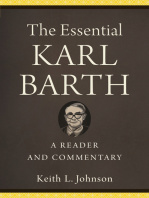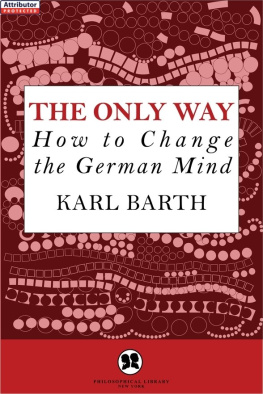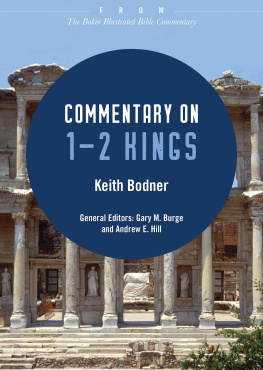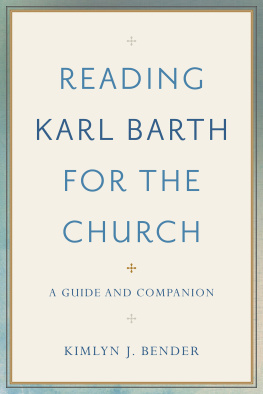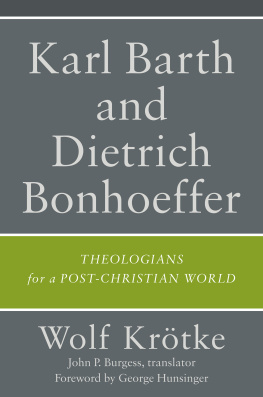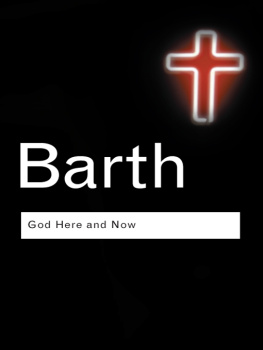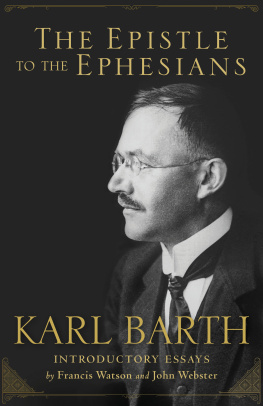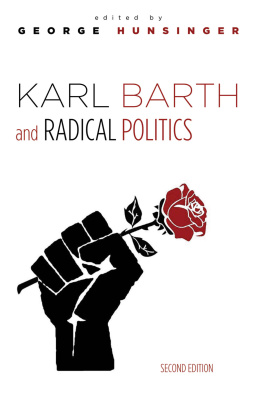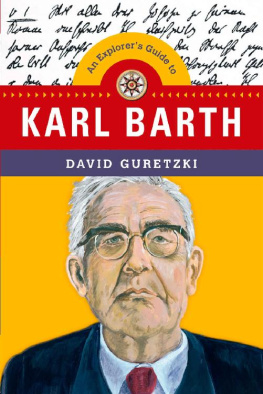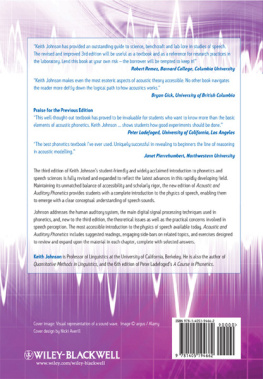Keith L. Johnson - The Essential Karl Barth: A Reader and Commentary
Here you can read online Keith L. Johnson - The Essential Karl Barth: A Reader and Commentary full text of the book (entire story) in english for free. Download pdf and epub, get meaning, cover and reviews about this ebook. genre: Religion. Description of the work, (preface) as well as reviews are available. Best literature library LitArk.com created for fans of good reading and offers a wide selection of genres:
Romance novel
Science fiction
Adventure
Detective
Science
History
Home and family
Prose
Art
Politics
Computer
Non-fiction
Religion
Business
Children
Humor
Choose a favorite category and find really read worthwhile books. Enjoy immersion in the world of imagination, feel the emotions of the characters or learn something new for yourself, make an fascinating discovery.
- Book:The Essential Karl Barth: A Reader and Commentary
- Author:
- Genre:
- Rating:3 / 5
- Favourites:Add to favourites
- Your mark:
- 60
- 1
- 2
- 3
- 4
- 5
The Essential Karl Barth: A Reader and Commentary: summary, description and annotation
We offer to read an annotation, description, summary or preface (depends on what the author of the book "The Essential Karl Barth: A Reader and Commentary" wrote himself). If you haven't found the necessary information about the book — write in the comments, we will try to find it.
The Essential Karl Barth: A Reader and Commentary — read online for free the complete book (whole text) full work
Below is the text of the book, divided by pages. System saving the place of the last page read, allows you to conveniently read the book "The Essential Karl Barth: A Reader and Commentary" online for free, without having to search again every time where you left off. Put a bookmark, and you can go to the page where you finished reading at any time.
Font size:
Interval:
Bookmark:
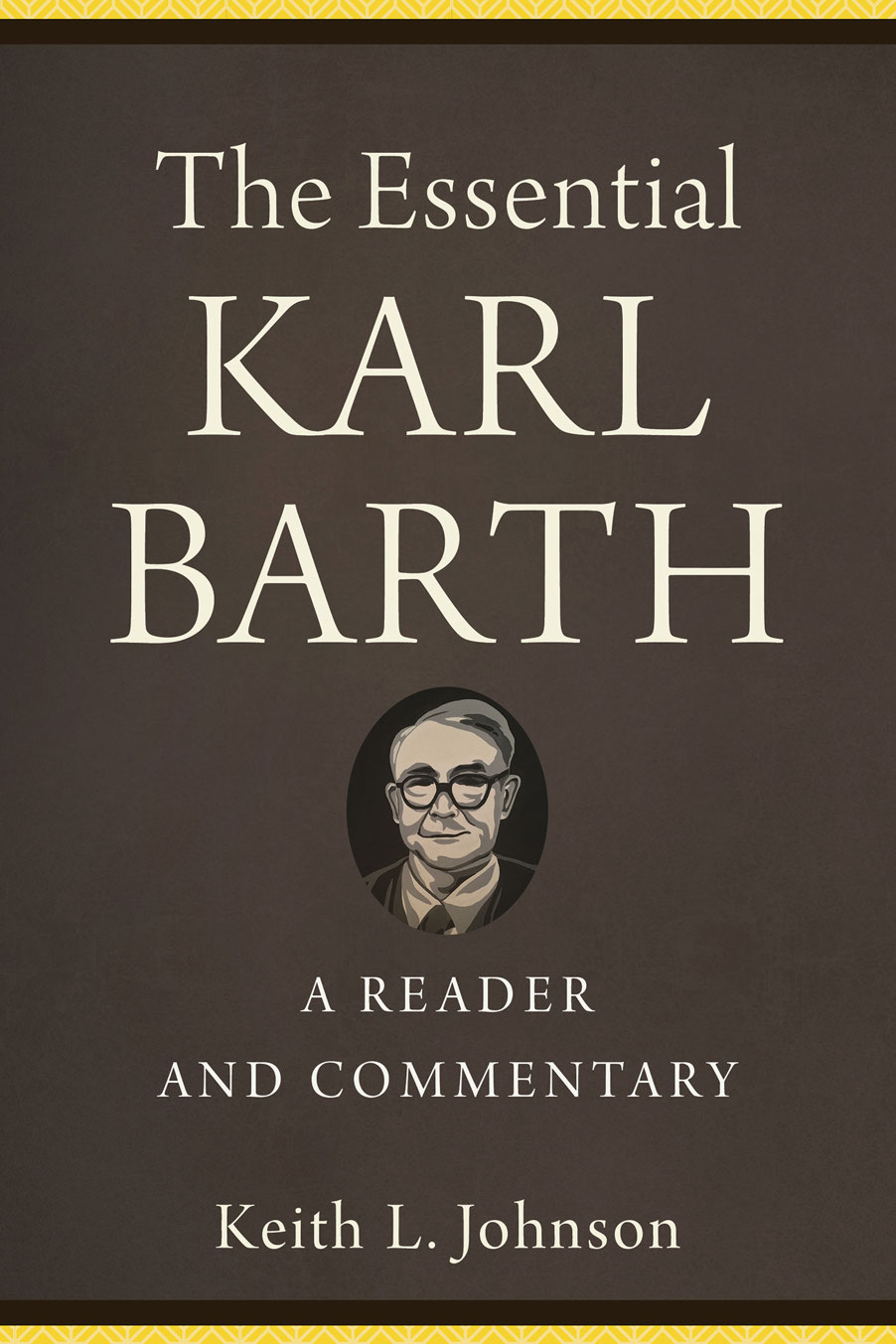

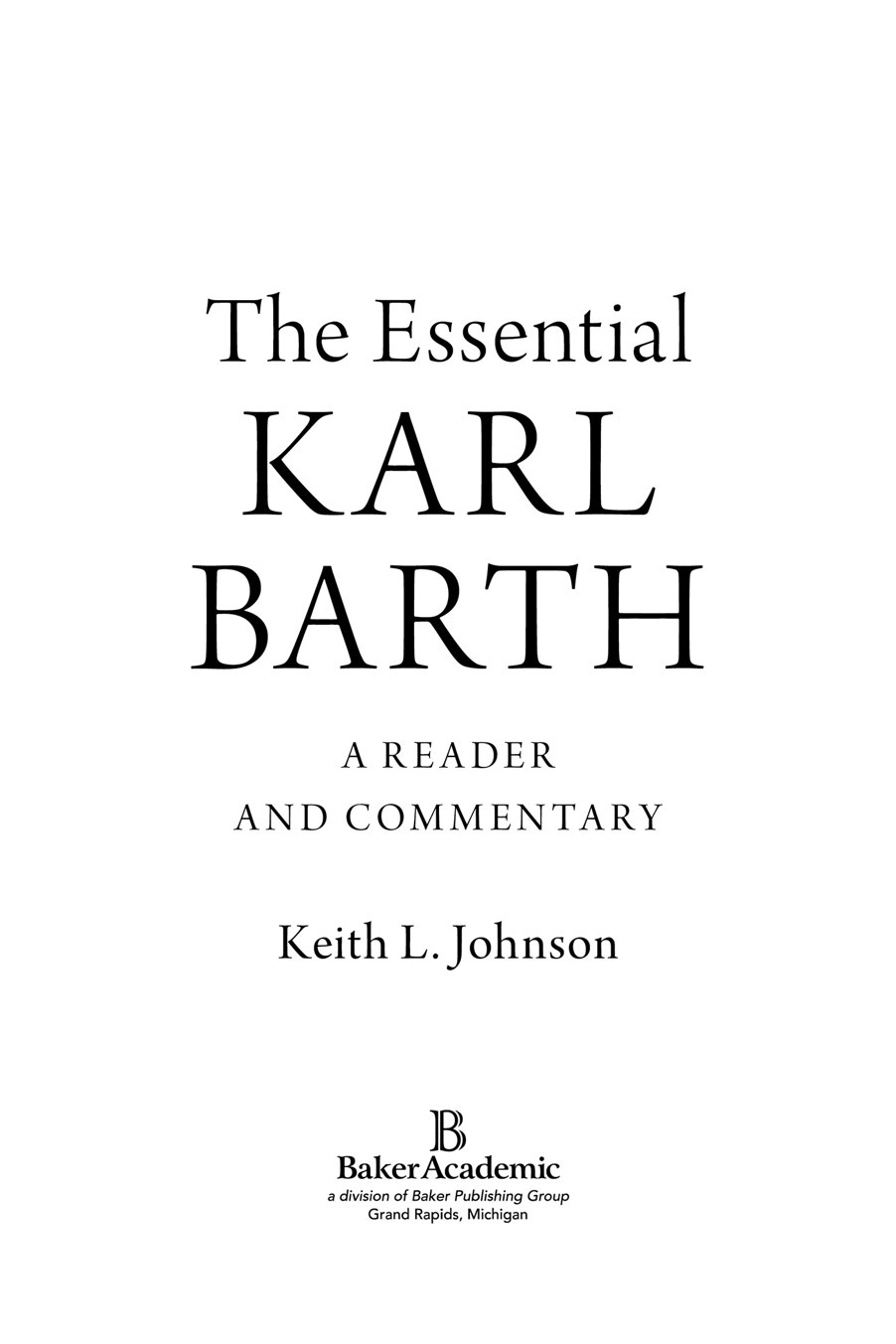
2019 by Keith L. Johnson
Published by Baker Academic
a division of Baker Publishing Group
PO Box 6287, Grand Rapids, MI 49516-6287
www.bakeracademic.com
Ebook edition created 2019
All rights reserved. No part of this publication may be reproduced, stored in a retrieval system, or transmitted in any form or by any meansfor example, electronic, photocopy, recordingwithout the prior written permission of the publisher. The only exception is brief quotations in printed reviews.
Library of Congress Cataloging-in-Publication Data is on file at the Library of Congress, Washington, DC.
ISBN 978-1-4934-1699-8
In the introductory material and commentary, Scripture quotations are from the New Revised Standard Version of the Bible, copyright 1989, by the Division of Christian Education of the National Council of the Churches of Christ in the United States of America. Used by permission. All rights reserved.
Scripture quotations labeled KJV are from the King James Version of the Bible.
Cover i
Half Title Page ii
Title Page iii
Copyright Page iv
Dedication v
Preface ix
1. Introduction: The Life of Karl Barth 1
Part 1: Barths Theological Development 13
2. The Epistle to the Romans 23
3. The Word of God as the Task of Theology 32
4. An Answer to Professor Adolf von Harnack 44
5. The Resurrection of the Dead 57
6. The Gttingen Dogmatics 63
7. The Holy Spirit and the Christian Life 69
8. Preface to Church Dogmatics I/1 74
9. Farewell 81
10. The Humanity of God 93
Part 2: Barths Church Dogmatics 103
11. The Task of Dogmatics 109
12. The Word of God 115
13. Revelation and Faith 120
14. The Doctrine of the Trinity 126
15. The Missions of the Son and the Spirit 137
16. The Knowledge of God 149
17. The Reality of God 167
18. The Doctrine of Election 174
19. The Election of Jesus Christ 190
20. Gods Decision for the World 200
21. Covenant and Creation 205
22. The Covenant Partner of God 211
23. God and Nothingness 224
24. God with Us 233
25. The Obedience of the Son of God 247
26. The Exaltation of the Son of Man 265
27. The Glory of the Mediator 278
28. The Scope of Salvation 287
29. Christian Community 290
Part 3: Barths Political Engagement 301
30. A Brief Reminiscence of the 1920s 303
31. Sermon on Romans 15:513 308
32. The Barmen Theological Declaration 320
33. The Role of Christians in Wartime: A Letter to American Christians 325
34. The Community of Christians and the Community of Citizens 337
Conclusion: The Tradition of Karl Barth 347
Credits 366
Index 369
Back Cover 372
This book introduces readers to the theology of Karl Barth by presenting several of his most important writings in a single volume. The process of selecting these texts posed a challenge. Barth wrote millions of words in dozens of books, essays, sermons, and letters over many decades. This book contains approximately 100,000 of those words. Tough decisions had to be made, and I made them with two goals in mind. First, I wanted to assemble a collection that told the story of Barths theology from the beginning to the end of his academic career. Barth lived a dramatic life, and I chose texts that captured the drama. Second, I selected texts that will help readers grasp the essence of Barths theology. I wanted readers to know and understand what Barth thinks, but I also wanted them to be able to approach the rest of Barths writings with confidence. As I look over the collection at the end of the process, I believe that this volume accomplishes both of these goals. But I could have reworked this volume several times over with completely different sets of texts and still have accomplished these same goals. This means that there is both good news and bad news for readers. The bad news is that many incredible texts were left on the cutting-room floor. The good news is that this book will prepare readers to spend a lifetime exploring them.
This book is divided into three parts, along with an introduction and conclusion on Barths life and legacy. Part 1 provides an overview of Barths theological development through texts that show how Barth refined his ideas over the course of his career. Part 2 features passages from Barths Church Dogmatics, the work that occupied the majority of his life. Part 3 offers a sample sermon and other key texts that show how Barth responded to the threat posed by the Nazi government in Germany.
Each part opens with an essay that explains its purpose and structure. Each selection begins with an introduction that provides the context for that text and summarizes its argument. The selections also feature editorial footnotes designed to help the reader grasp Barths claims more clearly. I wrote these footnotes with a particular audience in mind. The world of Barth scholarship contains many resources that are rich in content but also highly technical. Far fewer resources exist to help students learn how to read Barth. With this context in mind, I tried to avoid technicalities and the debates that occupy the time and energy of Barth specialists. My commentary instead is directed toward helping new readers of Barth to understand his work. My goal was to make Barths thought accessible, to explain his ideas clearly, and to provoke further reading. I tried to offer the commentary I wish had been available to me when I first started reading Barth.
Memories of my initial encounter with Barths work were on my mind when I agreed to take on this project. I read Barths theology for the first time two decades ago as an undergraduate student. From the very first page, I felt like I had found a new friend. Barth put into words the theology I hoped was true. His work has often functioned in a pastoral way for me, both in my personal life and in my professional work. Academic theology is a difficult profession, and so is teaching. At key moments, reading Barth reminded me why I began studying theology in the first place. His work directs me to Jesus Christ and reminds me that Christ is for me and for the world. His confidence is reassuring when I lack my own. I am inspired by the way he grew and developed over the course of his career, especially after getting a late start. His love for his subject matter always cheers me up, and his joyous approach gives me hope as I face difficult questions.
My work on this project proved to me that, after over two decades of studying Barth, I am still only beginning to understand his theology. Some theologians are interesting for only a short time because there is little substance beneath the surface. Barth is different because he has become more interesting the longer I have studied him. Part of what makes Barth so fascinating is that he possessed a rare combination of intellect, eloquence, and courage. An initial reading of his theology reveals a passionate and engaging theologian confidently explaining his subject matter. A deep examination of these same passages shows a highly complex thinker who has constructed his theology with a level of originality, depth, and precision that has been matched only rarely in the history of theology.
Next pageFont size:
Interval:
Bookmark:
Similar books «The Essential Karl Barth: A Reader and Commentary»
Look at similar books to The Essential Karl Barth: A Reader and Commentary. We have selected literature similar in name and meaning in the hope of providing readers with more options to find new, interesting, not yet read works.
Discussion, reviews of the book The Essential Karl Barth: A Reader and Commentary and just readers' own opinions. Leave your comments, write what you think about the work, its meaning or the main characters. Specify what exactly you liked and what you didn't like, and why you think so.

